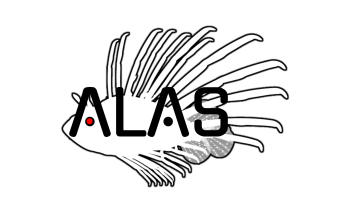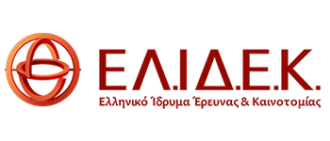#about
Σχετικά με το ALAS

Ερευνητικo πρoγραμμα ALAS
ALAS «Ξενικά είδη στο Αιγαίο – μια θάλασσα υπό πολιορκία»
To έργο ALAS «Ξενικά είδη στο Αιγαίο – μια θάλασσα υπό πολιορκία» είναι ένα ερευνητικό πρόγραμμα τριετούς διάρκειας που υλοποιείται στο Αιγαίο πέλαγος από το εργαστήριο Θαλάσσιας Βιοποικιλότητας και Διαχείρισης των Οικοσυστημάτων του τμήματος Ωκεανογραφίας και Θαλάσσιων Βιοεπιστημών του Πανεπιστημίου Αιγαίου.
Το ALAS υποστηρίζεται από το Ελληνικό Ίδρυμα Έρευνας και Καινοτομίας (ΕΛ.ΙΔ.Ε.Κ.) στο πλαίσιο της Δράσης «1η Προκήρυξη ερευνητικών έργων ΕΛ.ΙΔ.Ε.Κ. για την ενίσχυση των μελών ΔΕΠ και Ερευνητών/τριών και την προμήθεια ερευνητικού εξοπλισμού μεγάλης αξίας» και αποσκοπεί στην βελτίωση της κατανόησης στον κύκλο ζωής, στα πρότυπα κατανομής και στις οικολογικές επιπτώσεις των ξενικών ειδών στα οικοσυστήματα του Αιγαίου πελάγους.
Υπόβαθρο
Ξενικά είναι τα είδη εκείνα που, μέσω ανθρωπογενών δραστηριοτήτων, έχουν εισέλθει σε περιοχές πέρα από τη φυσική τους κατανομή, ξεπερνώντας βιογεωγραφικούς φραγμούς. Οι βιολογικές εισβολές αποτελούν χαρακτηριστικό γνώρισμα του Ανθρωπόκαινου καθώς οι ανθρώπινες δραστηριότητες διαμορφώνουν έντονα τη γεωγραφική κατανομή των ειδών. Η αυξανόμενη μετακίνηση ανθρώπων και αγαθών συμβάλουν στην αύξηση του ρυθμού των βιολογικών εισβολών. Ο παγκόσμιος ρυθμός νέων εισβολών αυξάνεται διαρκώς, χωρίς να επέρχεται κορεσμός στη συσσώρευση ξενικών ειδών. Στην Ευρώπη έχουν καταγραφεί μέχρι σήμερα ~15000 ξενικά είδη, με αυξητικό ρυθμό νέων αφίξεων. Στη Μεσόγειο, ~1000 ξενικά θαλάσσια είδη έχουν εισέλθει με διάφορους τρόπους και ο αριθμός αυξάνεται συνεχώς.
Εισβολικά Ξενικά Είδη
Πολλά ξενικά είδη γίνονται «εισβολικά» με σημαντικές επιπτώσεις στη βιολογική ποικιλότητα, την ανθρώπινη υγεία και τις οικοσυστημικές υπηρεσίες. Οι οικολογικές επιπτώσεις των εισβολικών ειδών είναι τόσο σημαντικές που συγκαταλέγονται μεταξύ των σημαντικότερων αιτίων των απωλειών βιοποικιλότητας παγκοσμίως. Οι επιπτώσεις από τα εισβολικά είδη περιλαμβάνουν τη μείωση πληθυσμών, εξαφανίσεις ειδών, μεταβολές στη σύνθεση των κοινοτήτων, επιπτώσεις σε οικοσυστημικές διεργασίες και στη λειτουργία των οικοσυστημάτων, κοινωνικά προβλήματα και σημαντικές οικονομικές απώλειες.

Στόχος
Προγράμματος

Το πρόγραμμα ALAS αποσκοπεί στη βελτίωση της κατανόησης των επιπτώσεων των ξενικών ειδών στο Αιγαίο, στην κάλυψη κενών γνώσης και στην υποστήριξη των θαλάσσιων διαχειριστών στην ιεράρχηση δράσεων προστασίας.
Το ALAS εστιάζει σε ανεπαρκώς μελετημένες αλληλεπιδράσεις ξενικών-αυτόχθονων ειδών και ευάλωτους οικότοπους προτεραιότητας (όπως υποθαλάσσια σπήλαια και «δάση» μακροφυκών με δενδροειδείς θαλλούς – Οικότοποι 8330 και 1170 της Οδηγίας 92/43/EEC) και εφαρμόζει πολυεπίπεδες προσεγγίσεις (όπως πειράματα στο πεδίο, ερευνητικές αποστολές σε μεγάλη κλίμακα, χρήση δορυφορικών εικόνων και τηλεπισκόπησης, μοντέλα κατανομής ειδών, εκτίμηση σωρευτικών επιπτώσεων).
Επίσης, στόχος του είναι να δώσει απάντηση σε σημαντικά οικολογικά ερωτήματα για τους μηχανισμούς επιπτώσεων των ξενικών ειδών, βοηθώντας έτσι στη λήψη αποφάσεων για δράσεις θαλάσσιας διατήρησης, στο πλαίσιο μιας αποτελεσματικότερης θαλάσσιας διαχείρισης.

Η Ομάδα μας

Στέλιος Κατσανεβάκης
Επιστημονικός Υπεύθυνος
Ο Στέλιος Κατσανεβάκης είναι ο συντονιστής του προγράμματος ALAS. Είναι Καθηγητής Θαλάσσιας Οικολογίας στο Τμήμα Ωκεανογραφίας και Θαλασσίων Βιοεπιστημών του Πανεπιστημίου Αιγαίου, με μεγάλη εμπειρία στα Μεσογειακά θαλάσσια οικοσυστήματα. Η έρευνά του τα τελευταία χρόνια επικεντρώνει στη Βιολογία Διατήρησης, στις Βιολογικές Εισβολές και στην ανάπτυξη και εφαρμογή μεθόδων Οικολογικής Παρακολούθησης, με έμφαση στις οπτικές μεθόδους υποβρύχιας παρακολούθησης. Συμμετείχε στη δημιουργία και ανάπτυξη του Ευρωπαϊκού Πληροφοριακού Δικτύου για τα Ξενικά Είδη (EASIN). Είναι ο συντονιστής της Δράσης COST ‘Προωθώνταςη τη θαλάσσια διατήρησης στην Ευρώπη και τις γειτονικές θάλασσες’ (http://www.marcons-cost.eu/). Έχει συντονίσει ή συμμετάσχει σε αρκετά εθνικά και διεθνή ερευνητικά προγράμματα (π.χ. MESMA, MARISCA, PROTOMEDEA) και είναι (συ)συγγραφέας σε >150 επιστημονικές δημοσιεύσεις σε διεθνή περιοδικά με κριτές.
ResearchGate: https://www.researchgate.net/profile/Stelios_Katsanevakis
Google Scholar: http://scholar.google.gr/citations?user=PWAQG60AAAAJ&hl=en

Μαρία Σίνη
Μεταδιδακτορική ερευνήτρια
Η Μαρία Σίνη είναι θαλάσσια βιολόγος (BSc) με μεταπτυχιακό δίπλωμα στη διαχείριση θαλάσσιων βιολογικών πόρων (MSc) και διδακτορικό δίπλωμα στη θαλάσσια οικολογία (PhD). Τα ερευνητικά της ενδιαφέροντα εστιάζουν στην οικολογία ιχθυοπληθυσμών και βενθικών κοινοτήτων, στα πρότυπα κατανομής της θαλάσσιας βιοποικιλότητας, στην εκτίμηση οικολογικής κατάστασης παράκτιων θαλάσσιων οικοσυστημάτων, στο σχεδιασμό και την παρακολούθηση θαλάσσιων προστατευόμενων περιοχών μέσω της οικοσυστημικής προσέγγισης, και στην ανάπτυξη εργαλείων υποβρύχιας καταγραφής και ανάλυσης. Είναι εκπαιδεύτρια αυτόνομης κατάδυσης (PADI Open Water Diver Instructor, 2009), με πολυετή εμπειρία στην επιστημονική κατάδυση και στην οργάνωση εργασιών πεδίου. Έχει συμβάλει στην ανάπτυξη εργαλείων και μεθόδων μη-καταστρεπτικής υποβρύχιας καταγραφής, καθώς και λογισμικών χαρτογράφησης και ανάλυσης φωτογραφικών δειγμάτων. Σήμερα η Μαρία εργάζεται ως μεταδιδακτορική ερευνήτρια στο Τμήμα Ωκεανογραφίας και Θαλασσίων Βιοεπιστημών του Πανεπιστημίου Αιγαίου.
Google Scholar: https://scholar.google.com/citations?user=zOINM6gAAAAJ&hl=en
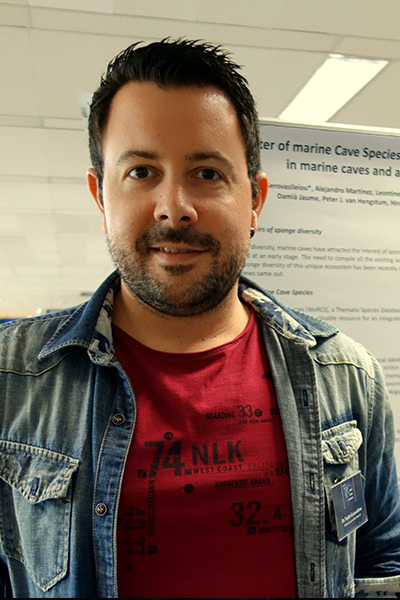
Βασίλης Γεροβασιλείου
Μεταδιδακτορικός ερευνητής
Ο Βασίλης Γεροβασιλείου είναι ωκεανογράφος με μεταπτυχιακή ειδίκευση στη διαχείριση παράκτιων περιοχών και διδακτορικό δίπλωμα στη θαλάσσια βιολογία. Η ερευνητική του δραστηριότητα επικεντρώνεται στη μελέτη της θαλάσσιας βιοποικιλότητας και της βενθικής οικολογίας, με έμφαση στα βενθικά ασπόνδυλα, στα σκοτεινά ενδιαιτήματα (θαλάσσια σπήλαια και ενδιαιτήματα βαθιάς θάλασσας) και στα ξενικά είδη. Επίσης, έχει συμβάλει στην ανάπτυξη βάσεων δεδομένων θαλάσσιας βιοποικιλότητας (π.χ. World Register of marine Cave Species), δράσεων πολιτών-επιστημόνων και μεθόδων υποθαλάσσιας βιολογικής έρευνας με αυτόνομη κατάδυση (SCUBA). Έχει συμμετάσχει σε περισσότερα από 45 ερευνητικά προγράμματα (επιστημονικός υπεύθυνος / συντονιστής πακέτων εργασίας σε δύο) και είναι (συ)συγγραφέας σε 65 επιστημονικές δημοσιεύσεις σε διεθνή περιοδικά με κριτές. Σήμερα εργάζεται ως μεταδιδακτορικός ερευνητής στο Ελληνικό Κέντρο Θαλασσίων Ερευνών στην Κρήτη και συνεργάζεται με το Τμήμα Ωκεανογραφίας και Θαλασσίων Βιοεπιστημών του Πανεπιστημίου Αιγαίου.
ResearchGate: https://www.researchgate.net/profile/Vasilis_Gerovasileiou
Google Scholar: https://scholar.google.com/citations?user=VVoE5PMAAAAJ&hl=el
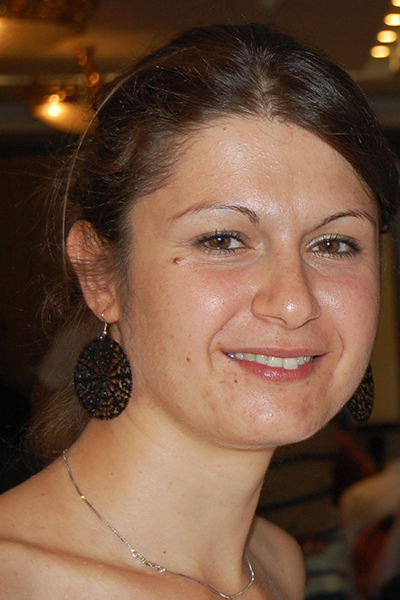
Νικολέττα Κουκουρουβλή
Υποψήφια διδάκτορας
Η Νικολέττα Κουκουρουβλή είναι Περιβαλλοντικός Χαρτογράφος με μεταπτυχιακό δίπλωμα στη Γεωγραφία και Εφαρμοσμένη Γεωπληροφορική και στη Διαχείριση Παράκτιων Περιοχών και υποψήφια διδάκτορας του Πανεπιστημίου Αιγαίου. Έχει συμμετάσχει σε περισσότερα από 20 εθνικά και διεθνή επιστημονικά προγράμματα, εκ των οποίων δυο εστιάζουν στο Θαλάσσιο Περιβάλλον (MARISCA & PROTOMEDEA). Είναι μέλος του Εργαστηρίου Χαρτογραφίας του Τμήματος Γεωγραφίας του Πανεπιστημίου Αιγαίου από το 2005 και ασχολείται κυρίως με Διαχείριση Βάσεων Δεδομένων και Χαρτογραφία.
ResearchGate: https://www.researchgate.net/profile/Nikoletta_Koukourouvli
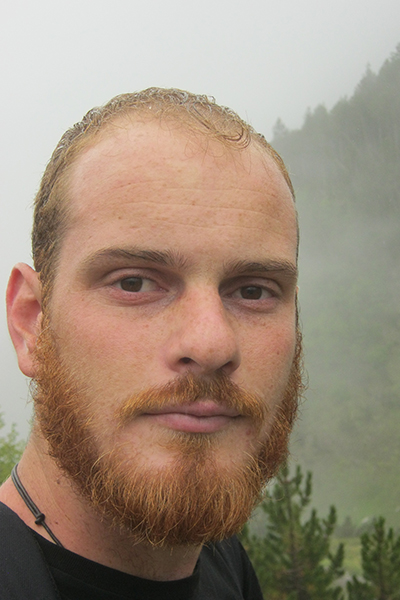
Μιχάλης Ραγκούσης
Υποψήφιος διδάκτορας
Ο Μιχάλης Ραγκούσης κατέχει προπτυχιακό τίτλο από το Τμήμα Ωκεανογραφίας και Θαλασσίων Βιοεπιστημών του Πανεπιστημίου Αιγαίου και μεταπτυχιακό τίτλο στην Θαλάσσια Βιολογία από το Πανεπιστήμιο της Νότιας Δανίας. Ανήκει στο εργαστήριο Θαλάσσιας Βιοποικιλότητας και Οικοσυστημικής Διαχείρισης ενώ είναι υποψήφιος διδάκτορας στο Πανεπιστήμιο Αιγαίου. Η έρευνα του εστιάζει στα χωρικά πρότυπα κατανομής εισβολικών ειδών στα εγχώρια θαλάσσια οικοσυστήματα όπως επίσης και στην μεταβολή των προτύπων αυτών σε σενάρια κλιματικής αλλαγής με χρήση ποσοτικών μεθόδων στο πεδίο αλλά και αριθμητικές μεθόδους.
ResearchGate: https://www.researchgate.net/profile/Michail_Ragkousis

Κωνσταντίνος Τσιριντάνης
Υποψήφιος διδάκτορας
Ο Τσιριντάνης Κωνσταντίνος είναι Ωκεανογράφος με μεταπτυχιακό δίπλωμα στην «Ολοκληρωμένη Διαχείριση Παράκτιων Περιοχών» και υποψήφιος διδάκτορας του Πανεπιστημίου Αιγαίου. Η έρευνα του αφορά την αξιολόγηση επιπτώσεων των βιολογικών εισβολών στα παράκτια οικοσυστήματα του Αιγαίου πελάγους. Eίναι πιστοποιημένος δύτης ελεύθερης και αυτόνομης κατάδυσης, διαθέτει εμπειρία στην επιστημονική κατάδυση, στην αξιολόγηση οικολογικής κατάστασης, στην εφαρμογή μεθόδων οικολογικής παρακολούθησης με μη καταστρεπτικές τεχνικές, στην εφαρμογή υποθαλάσσιων πειραμάτων, στις υποβρύχιες οπτικές καταγραφές της θαλάσσιας ζωής, στη λήψη υποθαλάσσιων δειγμάτων, στην αναγνώριση θαλάσσιων οργανισμών και στην υποβρύχια φωτογράφιση.
ResearchGate: https://www.researchgate.net/profile/Konstantinos_Tsirintanis
Google Scholar: https://scholar.google.com/citations?user=MjpEzOoAAAAJ

Μάρκος Διγενής
Μεταπτυχιακός φοιτητής
Ο Μάρκος Διγενής ολοκληρώνει τις μεταπτυχιακές του σπουδές με θέμα την Περιβαλλοντική Βιολογία στο Τμήμα Βιολογίας του Πανεπιστημίου Κρήτης και είναι απόφοιτος του Τμήματος Χημείας του Πανεπιστημίου Κρήτης. Είναι αυτόνομος σπηλαιολόγος και η ερευνά του εστιάζει στη διαβάθμιση των βενθικών βιοκοινοτήτων σκληρού υποστρώματος των θαλάσσιων σπηλαίων της Ελλάδας καθώς και στα χωρικά πρότυπα κατανομής αυτόχθονων και ξενικών ειδών στο περιβάλλον του σπηλαίου.
ResearchGate: https://www.researchgate.net/profile/Markos_Digenis
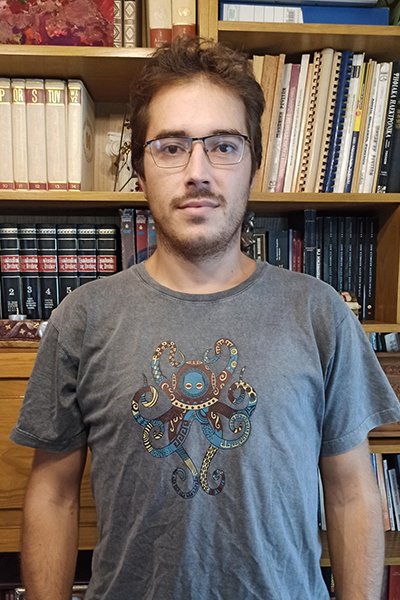
Τσατίρης Αλέξανδρος
Μεταπτυχιακός φοιτητής
Ο Αλέξανδρος Τσατίρης είναι απόφοιτος του τμήματος Ωκεανογραφίας και Θαλάσσιων Βιοεπιστημών και ολοκληρώνει το πρόγραμμα μεταπτυχιακών σπουδών με τίτλο «Ολοκληρωμένη Διαχείριση Παράκτιων Περιοχών» του Πανεπιστημίου Αιγαίου. Είναι πιστοποιημένος δύτης αυτόνομης κατάδυσης και ασχολήθηκε σε προπτυχιακό επίπεδο με εκτίμηση πληθυσμιακής αυθονίας & πυκνότητας της Pinna nobilis με Distance Sampling.
ResearchGate: https://www.researchgate.net/profile/Alexandros_Tsatiris

